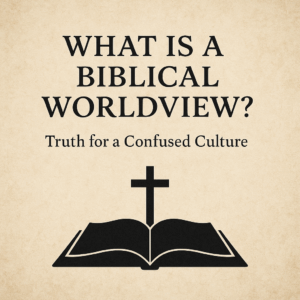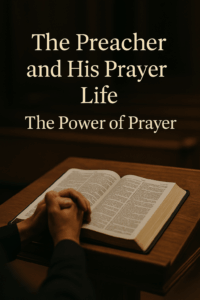⏱️ Estimated Reading Time: 7 min read
Heaven. The mere mention of the word sends a surge of joyous expectation through ever fiber of the believer. With that said, is what we think or have been taught concerning heaven correct and in alignment with biblical teaching? Will we be floating around on a cloud playing a harp or is heaven something a bit more shall we say terrestrial in its construct? A new addition to the Theology in Community series from Crossway Books seeks to address these and many other important theological questions regarding this beloved topic.
Edited by Christopher Morgan and Robert Peterson, this book contains eleven essays by some well known and respected theologians on the topic of heaven as it is outlined throughout Scripture. While all of the essays in this book are worthy of discussion, I will focus on three I found to be among the standout submissions, namely Andreas Kostenberger discussion of heaven as outlined in John’s Gospel and Revelation, Robert Peterson’s treatment of how heaven is pictured in Scripture, and finally David Calhoun’s comments on heaven as the hope of the believer.
Andreas Kostenberger rightly notes the Gospel of John provides the reader with three important concepts by which to comprehend regarding heaven. First, heaven is where God resides. Second, heaven is to some extent a present reality for the believer, and finally, heaven is our promised destination, the place where the Bride (Jesus) and the bridegroom (the people of God) will dwell together for eternity. Concepts one and three are likely one’s which most believers are familiar at least in part. The second is one that is arguably often overlooked. Heaven is clearly the place where God dwells. Kostenberger aptly notes “Of the sixteen occurrences of the expression heaven in John’s Gospel, eleven clearly present heaven as the presently existing realm of God.” Thus, the idea that heaven is experienced in the present tense, at least in part, would seem to be impossible given this present existence is marred and that which is marred by sin cannot be in the presence of a holy God who is in heaven. Kostenberger does an excellent job of explaining this “inaugurated eschatology”, the concept that “In and through Christ, believers have access to end-time blessings, to heaven, and to God’s throne already in the here and now, yet they still long for the future day when their mortal bodies will be completely transformed, and they will dwell forever in God’s presence – the Father’s house.” It is this Father’s house that Jesus speaks of in John 14. I appreciated that Kostenberger connected what Jesus spoke of in John 14 with the marriage process of betrothal. This bride/bridegroom construct is noted both in John’s Gospel and in Revelation. Kostenberger rightly avers “one day in the future, believers will have full access to the Father when they forever dwell with him in his house and abode.” This will be no disembodied existence floating around on a cloud. This will be a place where believers will physically dwell with their Bride for all eternity in a new heavens and a new earth where sin and death are no more.
Robert Peterson provides a valuable essay that focuses on the pictures of heaven provided throughout Scripture. In the beginning God created the heavens and the earth. Everything was perfect. Then sin happened which marred that perfection. Part of God’s eternal divine plan was the redemption and restoration of that which was marred and thus we have in Scripture the movement towards that future and complete fulfillment of that redemption, the consummation even when sin and death will no longer be part of the equation. I enjoyed most of all Peterson’s treatment of Sabbath rest. God did not rest because He was tired from His creative activities. Conversely, as noted by Peterson, “God’s presence brings rest. To be in God’s presence is to enjoy his rest, to be under his care. Because Adam and Even lived in Eden, God’s resting place, they participated in his own perfect rest.” With the entrance of sin, that perfect rest, that perfect physical and spiritual relationship between Creator and creation was interrupted. Man was cast out from the Garden and from God’s presence. True shabat would have to wait for a future time when Creator and creation would once again dwell together. Throughout Scripture, this concept of rest is noted as taking place in part with the future perfect rest still a future hope. With the coming of Jesus, the answer to this longing for rest and peace is provided. Peterson aptly comments “Jesus is the answer – the answer to the endless warring of God’s people against their enemies, the answer to the weariness of their labor, and the place for which wandering souls have been searching since the fall.” He came to provide us that hope of rest and he will return so that finally all things will be made anew. At the end of the age, we will enjoy Sabbath with our God once again. As Peterson correctly declares, this hope “produces overflowing joy because of the glory that divine love has conferred upon us.”
The final essay of this excellent book is by David Calhoun and it focuses on this hope that we have of heaven, that place where peace, rest, and eternity in the presence of God will be experienced. The word hope is found throughout Scripture, 151 times in the ESV according to Calhoun. Furthermore, the meaning of hope is that of “trust and confidence”, in the case of heaven, complete faith and trust that what God has promised in His Word regarding heaven will indeed come to fruition in His perfect timing. In the midst of that hope is the reality of suffering. Calhoun saliently reminds the reader “Suffering comes to all who are members of God’s family.” But that suffering is for a purpose. While we may endure hardships, we count it all joy because of the confidence we have in the hope of God’s promised redemption. As Calhoun so wonderfully reminds us, “Faith believes what God has said and rejoices in what he has done. Hope stretches to see what God will do for those who love him and will do about this broken creation.” One thing is for certain and that is our hope rests in the promise of redemption. Maranatha!
I highly recommend this excellent book. It will be of great use for all believers in their study of heaven and what Scripture has to say on the subject. Reading this book stirred within me a renewed longing for that day when the Bride will return for His bridegroom for we know that then we will be with Him forevermore in a place of perfect peace in the presence of our God forevermore.
This book is available for purchase from Crossway Books by clicking here.
I received this book for free from Crossway Books for this review. I was not required to write a positive review. The opinions I have expressed are my own. I am disclosing this in accordance with the Federal Trade Commission’s 16 CFR, Part 255 : “Guides Concerning the Use of Endorsements and Testimonials in Advertising.”




